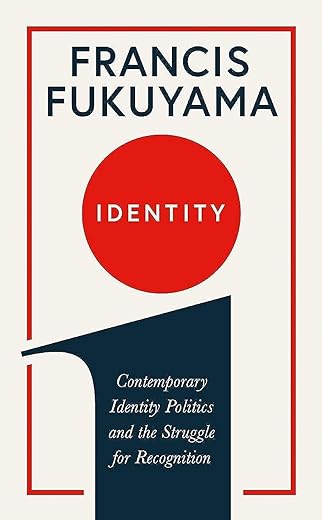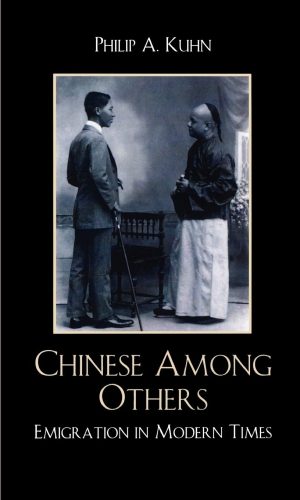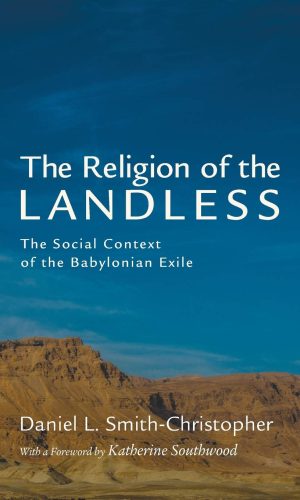Identity: Contemporary Identity Politics and the Struggle for Recognition
£8.90£10.40 (-14%)
Currently in Bill Gates’s bookbag and FT Books of 2018
Increasingly, the demands of identity direct the world’s politics. Nation, religion, sect, race, ethnicity, gender: these categories have overtaken broader, inclusive ideas of who we are. We have built walls rather than bridges. The result: increasing in anti-immigrant sentiment, rioting on college campuses, and the return of open white supremacy to our politics.
In 2014, Francis Fukuyama wrote that American and global institutions were in a state of decay, as the state was captured by powerful interest groups. Two years later, his predictions were borne out by the rise to power of a series of political outsiders whose economic nationalism and authoritarian tendencies threatens to destabilise the entire international order. These populist nationalists seek direct charismatic connection to ‘the people’, who are usually defined in narrow identity terms that offer an irresistible call to an in-group and exclude large parts of the population as a whole.
Identity is an urgent and necessary book: a sharp warning that unless we forge a universal understanding of human dignity, we will doom ourselves to continual conflict.
Read more
Additional information
| Publisher | Main edition (5 Sept. 2019), Profile Books |
|---|---|
| Language | English |
| Paperback | 240 pages |
| ISBN-10 | 178125981X |
| ISBN-13 | 978-1781259818 |
| Dimensions | 12.8 x 2 x 19.4 cm |










by Michael Duerden
Just finished reading IDENTITY: Contemporary Identity Politics and the Struggle for Recognition by Francis Fukuyama.
In summary the book is about how liberal democracies are being supplanted by identity politics which in extreme versions encourage ethnic and cultural nationalism.
Liberal democracies espouse the equality of man/woman. Left wing politics attempts to achieve this goal through redistribution of wealth using the power of the state. Right wing politics emphasises freedom of choice and encouragement of free enterprise regulated by market forces. Both left and right concentrate on economy as the main driver of change.
In identity politics economic issues take second place to the need to recognise who I am and my intrinsic worth which is not fairly recognised by the society in which I live. Because a person’s feelings of unappreciated potential are often unique to a particular group and in the last resort to the individual, identity politics has the potential to increasingly fragment society into ever more select and exclusive groups, often held together by joint feelings of victimhood which again often leads to demands to be seen as superior to other groups within society.
The danger of identity politics as far as the author sees it is nationalism based on ethnicity and common culture, with populist no longer bound by economics as a primary source of discontent but able to stir up feelings of hatred and animosity towards others who do not share the same ethnicity and culture.
So that is I think the main summarised message of the book which is a hard read that required a degree of concentration. But I enjoyed reading and being challenged by a well constructed book.
However as with so many books that attempt to grapple with the issues of today, the final chapter “What Is To Be Done?” is a little woolly and short on specifics on how to address the problems. This may be somewhat unfair as today’s issues are complex and probably beyond the scope of one book and indeed one author. But Francis Fukuyama is to be congratulated on making an attempt as this provided a sort of springboard for others thinking through the same set of problems.
So now to some of the book’s detailed argument:
The case for the source of identity feelings is built on “thymos”, a part of the human psyche or soul, which is the seat of judgments of worth of oneself that seeks recognition. The author extends this base idea to “isothymia”, the recognition of our own equality in terms of worth with our fellow human beings. And finally through consideration of the different aptitude’s and abilities of individuals and also owing to the stratification of communities caused by agriculture, to “megalothymia” in which societies only recognised an elite few.
The author rounds off this whole argument by claiming that the rise of modern democracy is about the replacement of megalothymia by isothymia, but that recognition of everyone’s equal worth entails a failure to recognise the worth of people who are actually superior in some sense.
This all leads to the modern concept of identity which places a supreme value on authenticity of inner feelings, and that one’s innermost being is not being allowed to express itself and thus be validated by society. This produces feelings of alienation and anxiety which can only be relieved when one accepts that inner self and receives public recognition for it.
The book then waffles on through Martin Luther and Jean-Jacques Rousseau from accepting God’s grace to human happiness and the obstacles placed on people by society’s rules and customs. The main aim of the argument at this point as far as I can fathom, is to show that democracy has to balance individual freedom and political equality – a task which has strained democracy to the limit as more and more people wish to assert their individual feelings of identity before other considerations.
The fragmentation of society into separate and increasingly exclusive Identity groups has led to a society as a whole which is not as cohesive and bound by common goals, principally economic, as in the past.
In Western society populist demagogues and rabble rousers has marched into the gap vacated by the Christian religion and provided answers to the different identity groups’ demand for recognition by asserting the rightness of ethnic superiority and common cultural values based on a society immune to the influences of mass immigration. The need for feelings of belonging have been assisted by the disconnect between the familiar setting a village life and the isolation of modern day living.
The book goes on to provide a similar analysis for other parts of the world coming to similar conclusions on inner conflicts with society, and how islamists have capitalised on this in an analogous way western populists.
Globalisation has produced more wealth but that wealth has created greater inequalities within most countries. And yet in 2016, voters failed to endorse the most left-wing populist candidates in favour of nationalist politicians as economic issues give way to the need for recognition.
There follows a more obtuse argument about who the people are, whether defined by birth and ancestry or by location within the boundary of a given nation. Of the global reach of transnational organisations versus the need for limits on a nation’s sovereignty defined by nation state boundaries.
The final chapters of the book are essentially about the global challenges that can only be addressed on an international basis, but that international cooperation is extraordinarily difficult so that any solutions need to be devised and promoted at national level between nation states.
I tried to give a flavour of what I regard as a worthwhile book even if at times I may have been critical or failed to present some of the arguments to the full extent they deserve. The world is experiencing a host of seemingly intractable issues with leaders who are either inept or more interested in their own self interests. But I will end with the author’s final exhortation from the final paragraph of his book:
“We will not escape from thinking about ourselves and our society in identity terms. But we need to remember that the identities dwelling deep inside us are neither fixed nor necessarily given to us by our accidents of birth. Identity can be used to divide, but it can and has been used to integrate. That in the end will be the remedy for the populist politics of the present.”
by IsaacK
The author provides a coherent exposition of the evolution of ideas underpinning democratic societies, particularly in Europe and US, since the enlightenment period, identifies unexpected adverse side effects of some well-intentioned ideas, and provides a point of view on how to address the current challenges.
Apart from its wide perspective and very-readable writing, what sets this book apart for me is the author’s ability to provide perspectives from across the political spectrum on the core issues discussed, resulting in this rare phenomenon at our current times: a balanced discussion, rather than a one-sided ‘left’ or ‘right’ polemic.
I found this book excellent, educational, and thought-provoking.
by Brummiemummy
I pulled some useful ideas from the book but felt there could have been more focus on the contemporary nature of identity politics. I don’t think it needed so much on tracing the origins, which seemed to be at the expense of exploring why the left is so interested in the identity agenda and how the fires have been stoked by social media and the economic interests of lobby groups and businesses keen to associate themselves with particular causes. An exploration of the rise of the identity of allyship would also have been useful, as this is perhaps an inevitable protective response to the tone of some identity narratives. It was unclear whether the author’s ultimate concern was identity politics itself or his association with polarisation and loss of reasoned critical debate. I am not sure he made a convincing case that the latter is a result of the former. The final chapter didn’t appear to offer any realistically workable solutions (these sorts of books rarely do) but I suspect a rallying call to those still attached to critical thinking is as much as could usefully be done.
by Richard big mouth Green
This book covers a dozen different topics in a concise and digestible way. I was surprised by how balanced and objective the writer was throughout. This book doesn’t dictate an ideology, it inspires the reader to question ideologies, cross-examine self and ensures we scrutinise our own perceptions of race, creed, and culture. Enlightening and thought-provoking. No matter how much you think you understand about *IDENTITY* this book will enlighten you further.